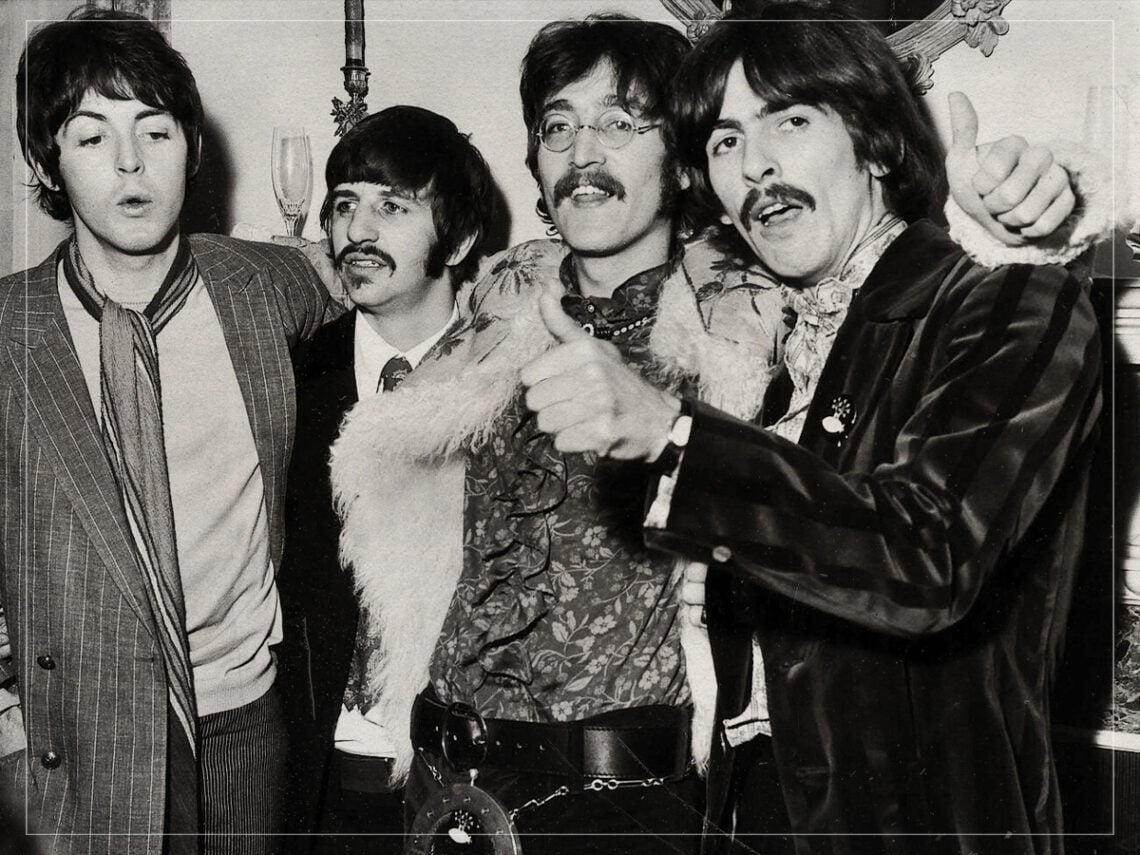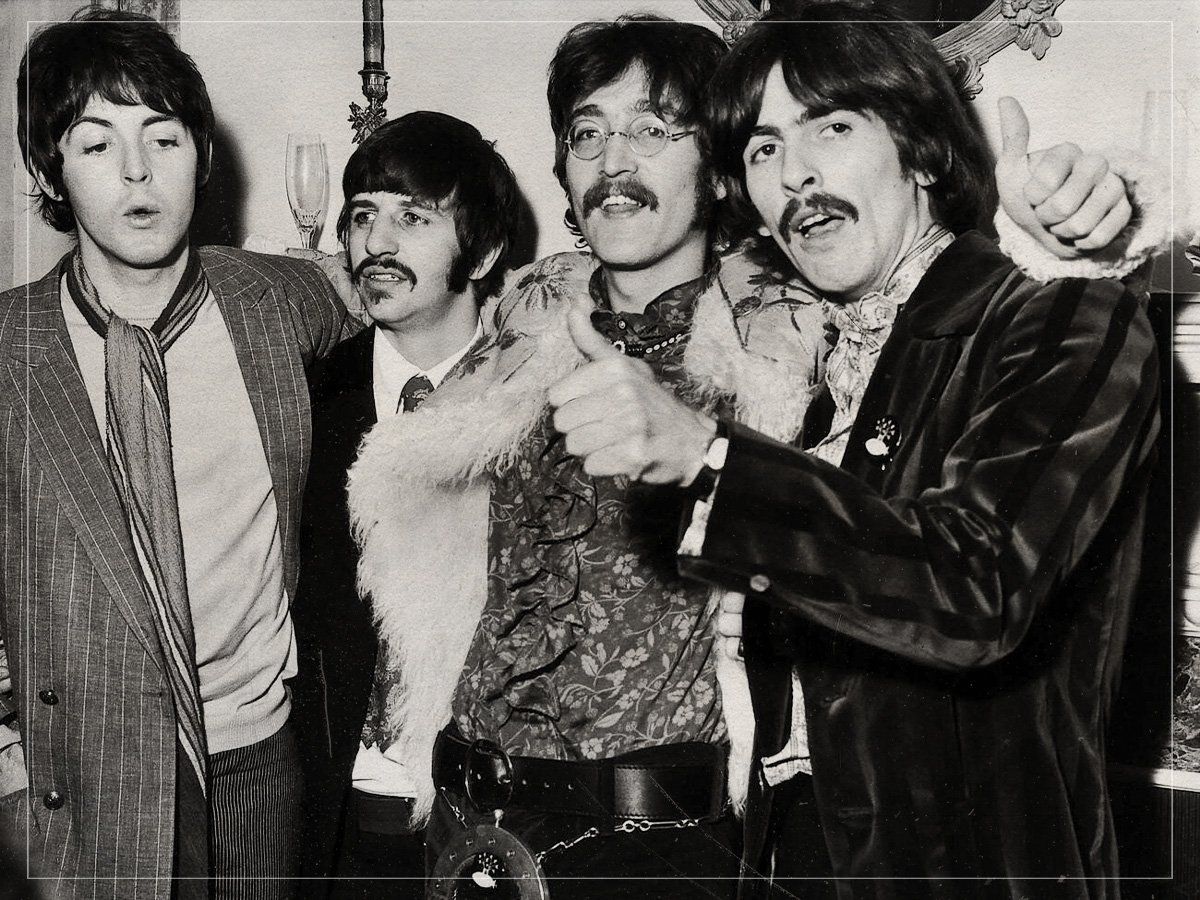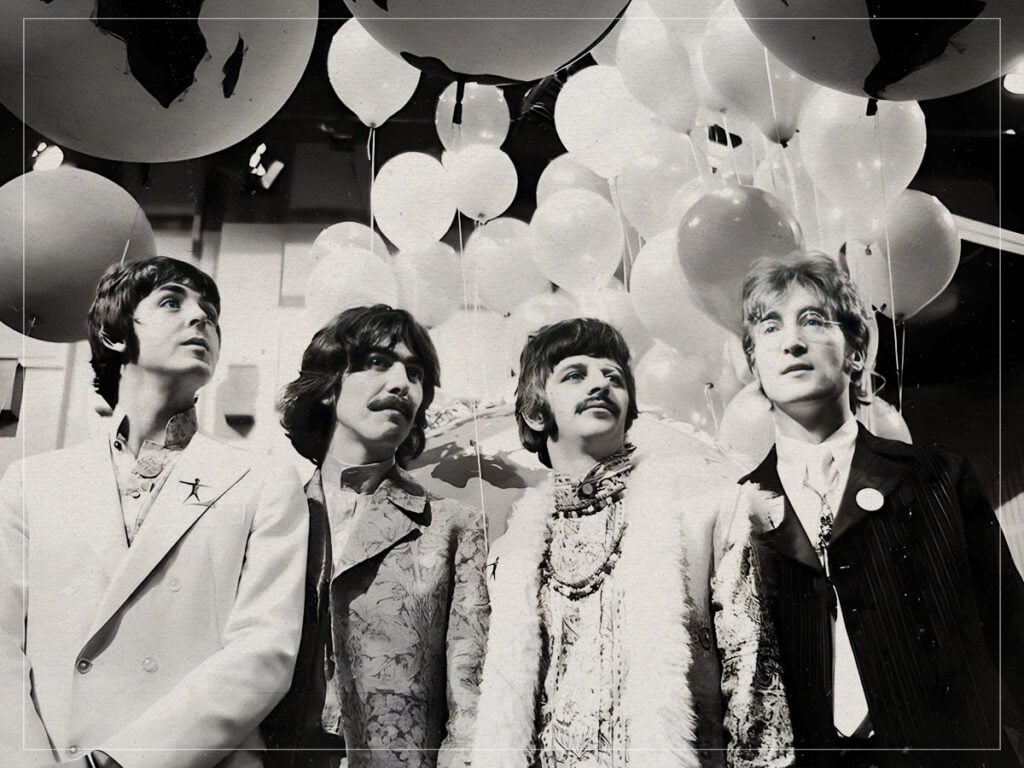
(Credits: Far Out / Alamy)
Mon 25 August 2025 17:00, UK
Far Out Magazine has now presented our Quick-fire Questions feature to hundreds of bands and artists. The last question is always: ‘Are The Beatles overrated?’ About 0.01% of people have taken that bait.
By and large, artists understand how pioneering and masterful the band were. However, there are still a few foolhardy folks out there who think that the fuss over the Fab Four is much ado about nothing. No song in their back catalogue refutes that quite like ‘I Am The Walrus’.
To fully understand the majesty of this strange, ungainly beast, you need to understand what the band represented at that point in their career.
It was 1967, and The Beatles had only been a force on the world stage for three years after they touched down in America on a frosty February in 1964. These days, three years roughly represents one solitary album-tour cycle for a group. But in that short window, the Liverpudlians had somehow managed to transform the world with a whirlwind of releases.
They were standing on an unprecedented precipice of fame and pushing forward into the unknown with haste. The very nature of everything that lay ahead of them being unknown, and the bravery the band showed foraging forth into it, is a defining factor of their magic.
While their legacy might now be unimpeached, barring the odd cynic, their eternal, monumental superstardom only seems foregone in retrospect. At the time, they might have been young and caught in an upswell of manic hysteria, but even the band weren’t naive enough to believe that they could do no wrong and fame and fortune couldn’t fail but to befall them.
Elvis Presley had already provided an example of how heroes could falter with his records receiving diminishing returns in the 1960s. So, the working-class lads could’ve easily been forgiven for fearing that they might accidentally take their lucky break and break it in two if they startled fans a little too strongly with something unfamiliar.
However, they did not heed this cautionary consideration and got ever more creative with each new release. ‘I Am The Walrus’ just about represents the peak of that. The song has no right being a giant hit so ubiquitous and beloved that even today, over half a century on from its release, you can say “I am the eggman” to a group of children and one of them will likely respond, “Goo-goo-chachoo”.
It is a nonsense poem inspired by the avant-garde world of Dadaism. It pioneered the coupling of pop with classical string arrangements in a truly full-blown manner. It is written in the fashion of a harmonic Möbius strip. It throws in modal shifts and defies functional harmony with mediant music techniques. It heralded sampling and stirred up psychedelia.
That’s too much for one band to host, let alone a single song. But somehow, all of that and more is contained in ‘I Am The Walrus’, and it gloriously defies all expectations that it happened to be presented to the world by its most mainstream band. These days we use ‘mainstream’ as an insult, proclaiming it to be synonymous with mundane, safe culture.
However, somehow The Beatles turned that on its head and made the world joyfully weird from a position of power. Imagine the biggest artist of today releasing something like ‘I Am The Walrus’ – it’s a thought experiment that the mind can’t comprehend. That sense of wonderment coming from the mainstream is a loss, but it is also one that marks the 1960s as a moment that will go down alongside the renaissance period as a profound chapter in the history of art.
So, while the likes of ‘I Wanna Hold Your Hand’ and its poppy platitudes might provide the odd cynic with a glint of an open goal to dismiss the Fab Four as commercial fodder, it mustn’t be forgotten that they led that modern renaissance charge from the front, flush with creative oddities that still remain difficult to fathom in the best possible way.
Related Topics
The Far Out Beatles Newsletter
All the latest stories about The Beatles from the independent voice of culture.
Straight to your inbox.


